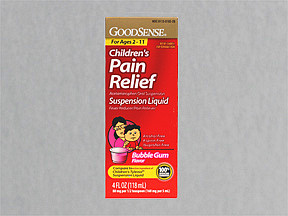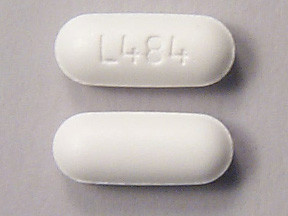ACETAMINOPHEN - ORAL
PHONETIC PRONUNCIATION: (a-SEET-a-MIN-oh-fen)
COMMON BRAND NAME(S): Panadol, Tylenol
GENERIC NAME(S): acetaminophen
Uses
USES: This drug is used to treat mild to moderate pain (from headaches, menstrual periods, toothaches, backaches, osteoarthritis, or cold/flu aches and pains) and to reduce fever.
How to use ACETAMINOPHEN - ORAL
HOW TO USE: Take this product by mouth as directed. Follow all directions on the product package. If you are uncertain about any of the information, consult your doctor or pharmacist. There are many brands and forms of acetaminophen available. Read the dosing instructions carefully for each product because the amount of acetaminophen may be different between products. Do not take more acetaminophen than recommended. (See also Warning section.) If you are giving acetaminophen to a child, be sure you use a product that is meant for children. Use your child's weight to find the right dose on the product package. If you don't know your child's weight, you can use their age. For suspensions, shake the medication well before each dose. Some liquids do not need to be shaken before use. Follow all directions on the product package. Measure the liquid medication with the provided dose-measuring spoon/dropper/syringe to make sure you have the correct dose. Do not use a household spoon. For rapidly-dissolving tablets, chew or allow to dissolve on the tongue, then swallow with or without water. For chewable tablets, chew thoroughly before swallowing. Do not crush or chew extended-release tablets. Doing so can release all of the drug at once, increasing the risk of side effects. Also, do not split the tablets unless they have a score line and your doctor or pharmacist tells you to do so. Swallow the whole or split tablet without crushing or chewing. For effervescent tablets, dissolve the dose in the recommended amount of water, then drink. Pain medications work best if they are used as the first signs of pain occur. If you wait until the symptoms have worsened, the medication may not work as well. Do not take this medication for fever for more than 3 days unless directed by your doctor. For adults, do not take this product for pain for more than 10 days (5 days in children) unless directed by your doctor. If the child has a sore throat (especially with high fever, headache, or nausea/vomiting), consult the doctor promptly. Tell your doctor if your condition persists or worsens or if you develop new symptoms. If you think you may have a serious medical problem, get medical help right away.
Side Effects
Precautions
Interactions
Overdose
Images
Reviews
Faq for ACETAMINOPHEN - ORAL
Acetaminophen is a medication used to relieve pain and reduce fever. It is available over-the-counter and also as a prescription medicine in higher dosages.
Acetaminophen works by inhibiting the production of certain chemicals in the body that cause pain and fever. It blocks the release of prostaglandins, which are responsible for transmitting pain signals.
Acetaminophen is commonly used to relieve mild to moderate pain, such as headaches, toothaches, muscle aches, and arthritis. It is also used to reduce fever associated with various illnesses.
When used as directed, acetaminophen is generally safe. However, it is important to follow the recommended dosage and not exceed the maximum daily limit to avoid liver damage. Certain medical conditions and medications may interact with acetaminophen, so it's best to consult a healthcare professional if you have any concerns.
Acetaminophen is generally safe to use with most medications, but it's important to check for potential drug interactions. It is particularly important to avoid combining acetaminophen with other products that contain acetaminophen to prevent accidental overdose.
Common side effects of acetaminophen are rare but may include rash, itching, and nausea. Serious side effects such as allergic reactions are very rare but require immediate medical attention.
Acetaminophen is generally considered safe to use during pregnancy and breastfeeding. However, it is always important to consult with a healthcare professional before taking any medication during these periods.
Acetaminophen typically starts working within 30 minutes to an hour after taking it. However, the exact onset of action may vary depending on the individual and the condition being treated.
Acetaminophen can be given to children, but it's important to use the appropriate pediatric formulation and follow the recommended dosage for their age and weight. Always consult a pediatrician or healthcare professional for specific guidance.
Warning
WARNING: Taking too much acetaminophen may cause serious (possibly fatal) liver disease. Adults should not take more than 4000 milligrams (4 grams) of acetaminophen a day. People with liver problems and children should take less acetaminophen. Ask your doctor or pharmacist how much acetaminophen is safe to take. Do not use with any other drug containing acetaminophen without asking your doctor or pharmacist first. Acetaminophen is in many nonprescription and prescription medications (such as pain/fever drugs or cough-and-cold products). Check the labels on all your medicines to see if they contain acetaminophen, and ask your pharmacist if you are unsure. Get medical help right away if you take too much acetaminophen (overdose), even if you feel well. Overdose symptoms may include nausea, vomiting, loss of appetite, sweating, stomach/abdominal pain, extreme tiredness, yellowing eyes/skin, and dark urine. Daily alcohol use, especially when combined with acetaminophen, may damage your liver. Avoid alcohol.
Disclaimer
IMPORTANT: HOW TO USE THIS INFORMATION: This is a summary and does NOT have all possible information about this product. This information does not assure that this product is safe, effective, or appropriate for you. This information is not individual medical advice and does not substitute for the advice of your health care professional. Always ask your health care professional for complete information about this product and your specific health needs.



For N/A: Use it for pain.
By Jim on 03 Oct, 2018
For chronic pain and back issues: helps with my back issues - been dealing with pain in the lower back for over 15 years.
By Penny on 15 Jul, 2019